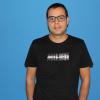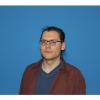Reference:
H2020-101017984
Coordinator:
BCAM - Basque Center for Applied Mathematics
Partners:
UTEXAS - The University of Texas System
Duration:
-
BCAM budget:
263,732.00
Funding agency:
European Commission
Type:
International Project
Status:
Closed
Project website:
https://cordis.europa.eu/project/id/101017984
Objective:
The main objective of this project is to design stabilized space-time adaptive techniques based on Discontinuous Petrov-Galerkin (DPG) methodology for the simulation of transient Partial Differential Equations (PDEs), with special emphasis on advection-dominated- diffusion and wave propagation problems. The final goal is to apply the resulting methods to improve the seismic imaging of the Earth’s subsurface for CO2-sequestration, a long-term storage process that contributes to fight climate change and mitigate global warming. In many geophysical problems governed by PDEs, it is important to accurately approximate some specific features of the solution. Goal-oriented adaptive techniques in finite element methods are powerful tools to achieve such goals with optimal computational cost. However, due to the unstable nature of the governing equations in geophysical flows, employing stable discretization methods is crucial in these kinds of algorithms. Stabilized methods such as DPG avoid refinements in unnecessary places of the domain. In this project, we will develop methods, algorithms and a software for transient PDEs employing stable time-marching schemes based on DPG method supporting goal-oriented adaptivity. Finally, we will present the obtained results to several European oil and gas companies in order to apply our method in real world scenarios. The host has an extensive experience in geophysical applications and the Third Country (TC) host is one of the inventors of the DPG method. This set up, together with the applicant’s experience in goal-oriented adaptive algorithms for PDEs, gives the applicant the perfect environment to efficiently develop the proposed project. Moreover, the knowledge and experience acquired during the fellowship will make her a potential applicant to obtain a strong research position in Europe. The host and the TC host will also benefit from the resulting advances on the topic and the industrial collaborations derived from this project.





